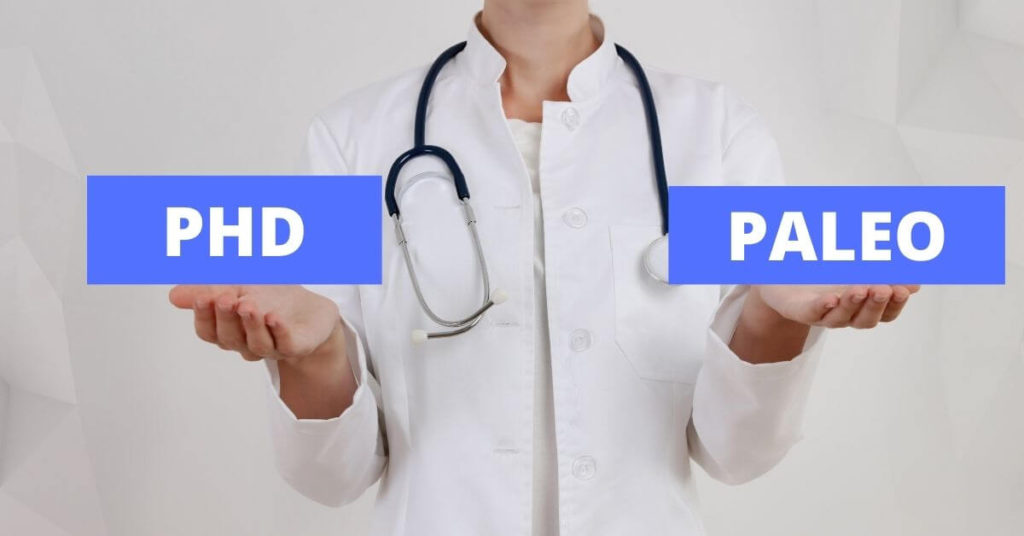Exploring the Proper Human Diet begins with understanding how our ancestors ate before the agricultural revolution. This meat-focused, low-carbohydrate approach to eating has gained significant attention in recent years, largely due to the work of Dr. Ken Berry. His research suggests that returning to our ancestral roots might hold the key to resolving many modern health challenges.
As processed foods and chronic diseases rise in tandem, many health-conscious individuals search for dietary solutions that align with our genetic makeup. The Proper Human Diet (PHD) offers a compelling alternative to conventional nutrition guidelines, emphasizing whole animal foods while eliminating processed ingredients.
This article dives into the science, benefits, and practical applications of the PHD, helping you decide if this ancestral approach might work for you.
Explore the Proper Human Diet
Click on different sections to learn more about this ancestral approach to nutrition
What is the Proper Human Diet?
The Proper Human Diet (PHD) is a meat-centric, low-carbohydrate approach pioneered by Dr. Ken Berry. It emphasizes eating patterns that align with our evolutionary biology.
Fat
70-80%
Protein
20-25%
Carbs
5%
This macronutrient ratio induces nutritional ketosis, shifting your body’s energy production from glucose to ketones derived from fatty acids.
Foods to Eat
Foods to Avoid
Health Benefits
-
Metabolic Health
-
Cardiovascular Health
-
Brain Function
-
Autoimmune Conditions
7-Day Meal Plan
Click on each day to see meal suggestions:
Breakfast
Ribeye steak (6 oz) with eggs cooked in tallow
Lunch
Salmon sashimi with sea salt and fermented vegetables
Dinner
Lamb chops roasted in herb-infused butter
Breakfast
Bacon and eggs with avocado
Lunch
Grass-fed burger patties with raw cheese
Dinner
Roast chicken with skin and bone broth
Breakfast
Beef liver with onions cooked in tallow
Lunch
Sardines with olive oil and lemon
Dinner
Venison steak with bone marrow
Test Your PHD Knowledge
1. What macronutrient ratio does the Proper Human Diet recommend?
2. Which of these foods is emphasized in the Proper Human Diet?
3. Who pioneered the Proper Human Diet?
Quiz Results
Your score: 0/3
What Is the Proper Human Diet?
The Proper Human Diet represents a significant shift in nutritional thinking. It’s a meat-centric, low-carbohydrate approach modeled after how humans ate for thousands of years before agriculture existed. This dietary framework focuses on whole animal foods while removing processed ingredients from your plate.
Dr. Ken Berry pioneered this approach, which emphasizes metabolic health through ketogenic principles. The diet draws from anthropological studies of pre-agricultural human eating patterns, which relied heavily on hunted and foraged foods.
Fossil evidence shows that early humans consumed approximately 45-65% of calories from animal sources, depending on what was available in their environment. This animal-dominated intake provided high-density nutrients like heme iron, vitamin B12, and complete proteins—elements that were harder to find in plant foods at that time.
Historical and Evolutionary Foundations
Reconnecting with Ancestral Nutrition
Human physiology evolved alongside specific food sources. Compared to herbivorous primates, humans developed digestive adaptations such as:
- Reduced gut length
- Increased stomach acidity
- Enzymatic adaptations for meat digestion
Dr. Berry’s approach specifically targets the mismatch between modern processed diets and these evolutionary adaptations. By eliminating grains, sugars, and industrial seed oils—foods that didn’t exist until the Neolithic Revolution about 10,000 years ago—the PHD aims to reduce inflammation triggered by novel dietary compounds.
This aligns with the “evolutionary mismatch” hypothesis, which suggests that many chronic diseases develop because we’re consuming foods incompatible with our genetic programming. Our bodies simply haven’t had enough time to adapt to the rapid dietary changes of the last few centuries.
Core Principles and Dietary Guidelines
Macronutrient Composition
The PHD prescribes a specific macronutrient ratio:
- 70-80% fat
- 20-25% protein
- 5% carbohydrates
This high-fat, moderate-protein, very low-carb approach induces nutritional ketosis. In this metabolic state, your body shifts energy production from glucose to ketones derived from fatty acids. Research suggests this may enhance cognitive function and cellular repair mechanisms.
Food Selection: What to Eat
Prioritized Foods
Ruminant Meats Beef, lamb, and venison provide conjugated linoleic acid (CLA) and branched-chain amino acids. These nutrients support muscle preservation and metabolic health. Grass-fed options offer additional benefits due to their improved fatty acid profiles.
Animal Fats Traditional fats like tallow, lard, and bone marrow provide saturated and monounsaturated fats. These support hormone production and help absorb fat-soluble vitamins. Unlike industrial seed oils, these fats have been part of human diets for millennia.
Organs and Bone Broth Liver, heart, and collagen-rich broths deliver micronutrients like retinol, copper, and glycine. These nutrients are often lacking in diets focused solely on muscle meats. For example, liver contains more vitamin A, B vitamins, and minerals than almost any other food.
Foods to Avoid
Processed Carbohydrates, refined grains, and sugars disrupt insulin signaling. Studies consistently show their association with metabolic syndrome, obesity, and type 2 diabetes. The rapid blood sugar spikes they cause may trigger inflammation and oxidative stress.
Industrial Seed Oils Vegetable oils like soybean, corn, and canola oil are high in omega-6 fatty acids. When consumed disproportionately to omega-3s, they promote inflammatory prostaglandins. These modern oils undergo extensive processing involving chemical solvents and high heat.
Legumes and Nightshades Beans, tomatoes, peppers, and potatoes contain compounds like lectins and alkaloids. These may impair nutrient absorption and worsen autoimmune conditions in sensitive individuals. Traditional cultures typically processed these foods extensively to neutralize anti-nutrients.
Documented Health Benefits
Metabolic and Cardiovascular Improvements
Clinical trials of ketogenic diets similar to the PHD show impressive results for metabolic health:
- 8-12% reductions in HbA1c levels among type 2 diabetics within six months
- Frequent reduction or elimination of diabetes medications
- Improved lipid profiles with increased HDL-C and lower triglycerides
The PHD’s emphasis on saturated fats may improve cholesterol markers in ways that contradict conventional guidelines favoring polyunsaturated fats. A 2024 cohort study found that high-fat diets increased LDL particle size, suggesting reduced cardiovascular risk despite elevated total cholesterol.
These findings challenge the traditional diet-heart hypothesis and suggest that context matters when evaluating dietary fats.
Neurological and Cognitive Benefits
Ketones serve as efficient fuel for brain cells. Research indicates improved outcomes in conditions including:
- Epilepsy (where ketogenic therapies have been used since the 1920s)
- Alzheimer’s disease
- Traumatic brain injury
Many PHD followers report heightened mental clarity and cognitive performance. These benefits may result from stabilized glucose levels and reduced neuroinflammation. The brain actually operates more efficiently on ketones than on glucose in many circumstances.
Autoimmune and Inflammatory Conditions
Case studies highlight significant improvements in autoimmune conditions when following elimination diets similar to the PHD:
- Remission of rheumatoid arthritis symptoms
- Reduction in psoriasis severity
- Improved gut function in inflammatory bowel disease
The PHD’s exclusion of common inflammatory triggers like gluten and lectins may explain these effects. While more rigorous clinical trials are needed, the anecdotal evidence from practitioners using this approach appears promising.
Practical Implementation: How to Follow the PHD
Seven-Day Carnivore-Centric Meal Plan
A representative meal plan from PHD resources includes foods like:
Day 1
- Breakfast: Ribeye steak (6 oz) with eggs cooked in tallow
- Lunch: Salmon sashimi with sea salt and fermented vegetables
- Dinner: Lamb chops roasted in herb-infused butter
Day 2
- Breakfast: Bacon and eggs with avocado
- Lunch: Grass-fed burger patties with raw cheese
- Dinner: Roast chicken with skin and bone broth
Day 3
- Breakfast: Beef liver with onions cooked in tallow
- Lunch: Sardines with olive oil and lemon
- Dinner: Venison steak with bone marrow
This plan averages about 2,800 calories per day, with the macronutrient breakdown matching the PHD recommendations (75% fat, 20% protein, 5% carbs). Modified versions permit limited low-carb vegetables like spinach and asparagus for those transitioning from plant-rich diets.
Addressing Common Challenges
Electrolyte Imbalance During adaptation to a very low-carb diet, the body excretes more sodium, which can lead to the “keto flu.” To prevent this, PHD guidelines recommend:
- Increased sodium: 5-7g per day
- Potassium: 3.5g daily
- Magnesium: 400mg daily
Social and Cultural Barriers Following a diet that differs from mainstream recommendations can create social challenges. PHD advocates suggest framing the diet as a “health intervention” rather than a lifestyle choice when navigating dining situations with friends and family.
Contrasting Perspectives: PHD vs. Conventional Guidelines
World Health Organization Guidelines vs. PHD
The contrast between PHD recommendations and conventional dietary guidelines is stark:
- WHO recommends daily fruit and vegetable intake
- WHO suggests limiting saturated fat to 10% of calories
- WHO promotes whole grains as healthy staples
PHD proponents argue that these recommendations rely on observational studies confounded by processed food consumption. They point to randomized controlled trials like the DIETFITS study, which found low-carb diets superior for weight loss and improving blood lipids compared to low-fat approaches.
This debate highlights the evolving nature of nutritional science and the challenge of establishing dietary guidelines that work for diverse populations.
Sustainability and Ethical Considerations
Critics of meat-centric diets often raise concerns about environmental impact, particularly greenhouse gas emissions from livestock. PHD advocates counter with several points:
- Regenerative grazing practices can sequester carbon in pasturelands
- Properly managed grazing may create net-negative emissions
- Ethical meat sourcing and nose-to-tail consumption reduce waste
These approaches align with environmental stewardship goals while maintaining the nutritional focus of the diet. The debate around sustainable meat production continues to evolve as new farming practices develop.
Future Directions and Research Needs
While the PHD shows promise for addressing modern health challenges, some important questions remain:
- Long-term studies (2+ years) on carnivore-style diets are scarce
- More research is needed on micronutrient adequacy over extended periods
- Potential renal and hepatic impacts require further investigation
Personalized approaches could optimize the PHD’s therapeutic potential. For example:
- Cyclic ketosis might benefit athletes with higher carbohydrate needs
- Protein modulation could help cancer patients
- Individual genetic factors may influence optimal fat intake
As nutritional science advances, these questions will likely receive more attention from researchers.
Is the Proper Human Diet Right for You?
Deciding whether to try the PHD requires considering your:
- Current health status
- Medical history
- Lifestyle factors
- Personal food preferences
Many health professionals recommend consulting with a healthcare provider before making significant dietary changes, particularly if you have existing health conditions or take medications. Monitoring biomarkers like fasting insulin, blood lipids, and high-sensitivity C-reactive protein can help assess your individual response.
Some people find the best results with a modified approach that incorporates elements of the PHD while allowing for greater dietary flexibility. Others benefit from following the protocol strictly, especially when addressing specific health concerns.
How to Get Started with the Proper Human Diet
If you’re interested in trying this approach, consider these steps:
- Research thoroughly – Read Dr. Berry’s resources and other scientific literature
- Consult healthcare providers – Especially important if you have existing health conditions
- Start gradually – Begin by eliminating processed foods and industrial oils
- Monitor your response – Track energy, mood, sleep, and any symptoms
- Adjust as needed – Make modifications based on your individual results
Websites like doctorkiltz.com, drberry.com, and properhumandietphd.com offer additional guidance, recipes, and meal plans to help you implement this approach.
Final Thoughts on the Proper Human Diet
The Proper Human Diet offers a thought-provoking framework for addressing modern metabolic diseases through alignment with our evolutionary biology. While debates continue regarding its long-term sustainability and nutritional completeness, emerging evidence supports its effectiveness for specific health concerns.
As with any dietary approach, individual responses vary. The PHD may work exceptionally well for some people while being less suitable for others. The key lies in understanding the principles, implementing them thoughtfully, and paying attention to your body’s response.
By integrating ancestral wisdom with contemporary research, we may discover sustainable solutions to the health challenges created by our modern food environment. Whether you adopt the PHD fully or incorporate some of its principles, focusing on whole, unprocessed foods remains a sound approach to nutrition.
As Dr. Berry often emphasizes, the best diet for any individual is the one that helps them achieve optimal health, energy, and quality of life—a truly “proper” human diet.


